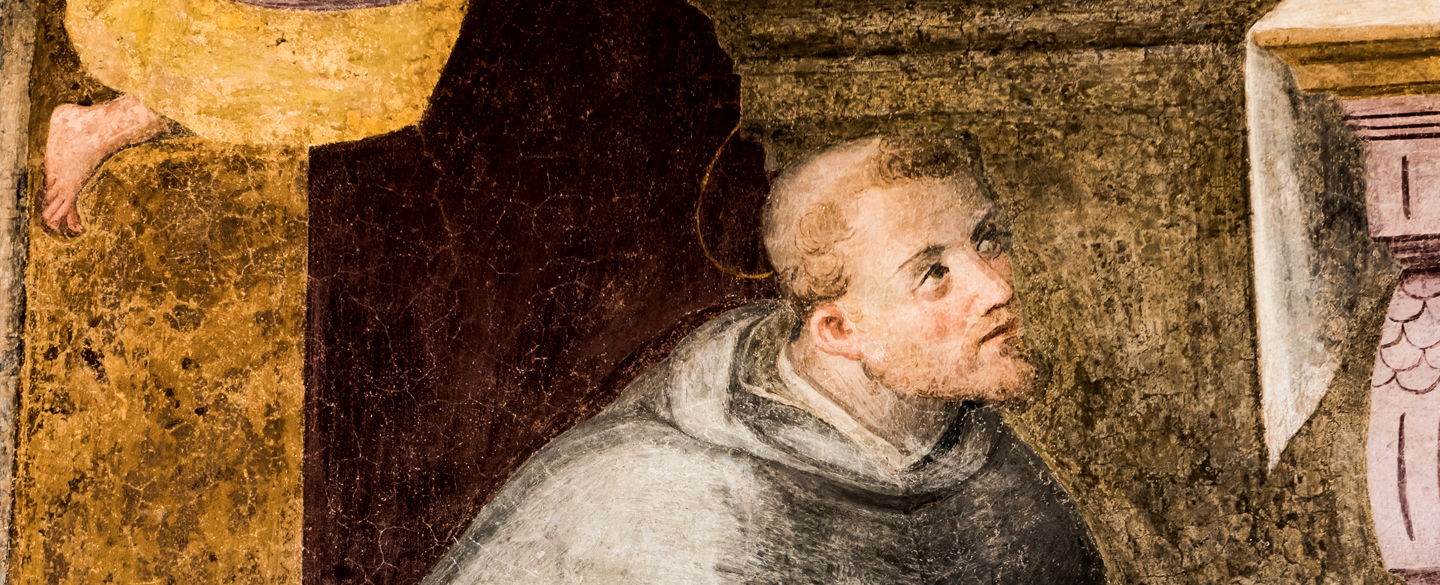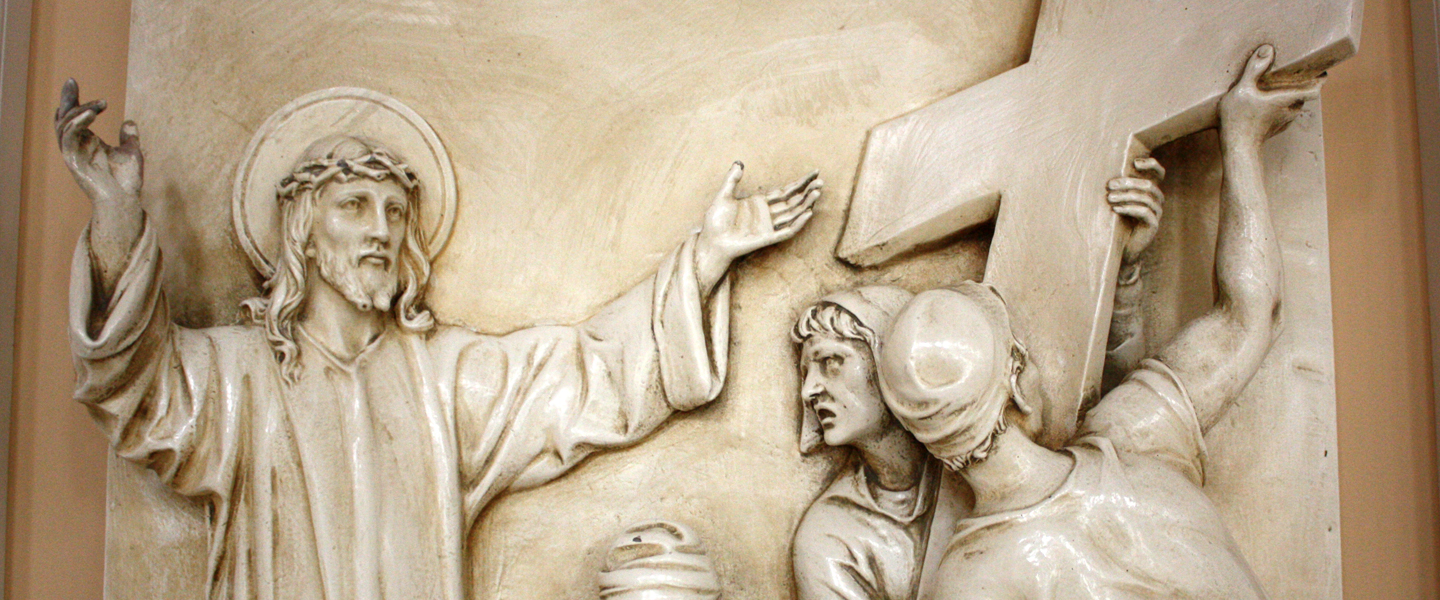
Let us remember Peter: three times he denied Jesus, precisely when he should have been closest to him; and when he hits bottom he meets the gaze of Jesus who patiently, wordlessly, says to him: "Peter, don't be afraid of your weakness, trust in Me." Peter understands, he feels the loving gaze of Jesus and he weeps. How beautiful is this gaze of Jesus — how much tenderness is there! Brothers and sisters, let us never lose trust in the patience and mercy of God! (Pope Francis, Homily on Divine Mercy Sunday 2013)
 The Sacrament of Penance engages us in the embrace of God’s mercy. Striving to conform our lives more perfectly to the life of Jesus, the sisters make frequent use of this sacrament.
The Sacrament of Penance engages us in the embrace of God’s mercy. Striving to conform our lives more perfectly to the life of Jesus, the sisters make frequent use of this sacrament.
All who are in mortal sin need the Sacrament of Penance to be restored to a state of grace. However, this is not the only purpose of this great sacrament. On a natural level, consideration of our sins and failings, along with resolution for improvement, is a necessary tool for human growth. On the supernatural level, we know that we are dependent upon God’s grace for any good that we can accomplish, whether for the good of our own souls or that of others.
Growth in the spiritual life requires rejection of even venial sin. No sin is compatible with the life of charity to which we are called. Christ’s love for the Father and for His brethren is the love we desire in our own lives. Sin separates us from God’s will and causes division among men. If we are to work toward the establishment of God’s kingdom we must be vigilant in rooting out sin.
St. Dominic expressed great pity for sinners and offered himself for their conversion. He also encouraged the friars to ever greater growth in perfection. The early brethren even commented that they were happy to receive correction from him, as it was given with obvious solicitude for their souls. We can imagine St. Dominic today urging us to fervent use of the Sacrament of Penance, with pity for our sins and desire for our holiness.
In mercy, we find proof of how God loves us. He gives his entire self, always, freely, asking nothing in return. He comes to our aid whenever we call upon him. What a beautiful thing that the Church begins her daily prayer with the words, “O God, come to my assistance. O Lord, make haste to help me” (Ps 70:2)! The assistance we ask for is already the first step of God’s mercy toward us. He comes to assist us in our weakness. And his help consists in helping us accept his presence and closeness to us. Day after day, touched by his compassion, we also can become compassionate towards others. (Misericordiae Vultus, 14)


 Back
Back